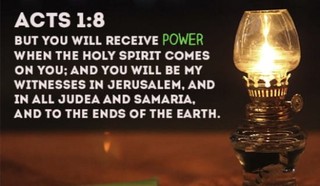
- Recent Translations
- All Translations
Gevurot 1:7
Share
Settings
Images for Gevurot 1:7

Gevurot 1:7 Meaning and Commentary
And he said unto them
To his disciples,
it is not for you to know the times or the seasons;
meaning, not the times that are past from Adam to Christ; as how long the world stood; when the flood came; when Sodom and Gomorrha were burned to ashes; when the children of Israel came out of Egypt, and the law was given to them; when the kingdom of Israel began, and when the Jews were carried captive, and when they returned; when the sceptre departed from Judah, and Daniel's weeks had an end: or the particular seasons of the year, and the times for planting, ploughing, sowing, reaping but when should be the time, the day, and hour of the coming of the son of man, when he shall set up his kingdom in a more glorious manner, and the kingdoms of this world shall become his; or when the kingdom shall be restored to Israel. This, by the Jews, is said to be one of the seven things hid from men F11:
``seven things are hid from the children of men, and these are they; the day of death, and the day of consolation, and the depth of judgment, and a man knows not what is in the heart of his neighbour, nor with what he shall be rewarded, and "when the kingdom of the house of David shall return", and when the kingdom of Persia shall fall.''Which the Father hath put in his own power;
and not in the power of a creature, no, not of the angels; see ( Matthew 24:36 ) wherefore it is vain and sinful, as well as fruitless, to indulge a curious inquiry into these things, or into the times and seasons of what is future; as of the time of a man's death, of the end of the world, of the second coming of Christ; only those things should be looked into which God has revealed, and put into the power of man to know by diligent search and inquiry. Says R. Simeon F12,
``flesh and blood, (i.e. man), which knows not (wyegrw wyte) , "its times and its moments", (and so the Vulgate Latin renders the words here), ought to add a void space to the blessed God, who knows the times and moments.''
F11 T. Bab. Pesachim, fol. 54. 2. Vid. Bereshit Rabba, sect. 65. fol. 57. 4.
F12 Apud R. Sol. Jarchi in Gen. ii. 2.